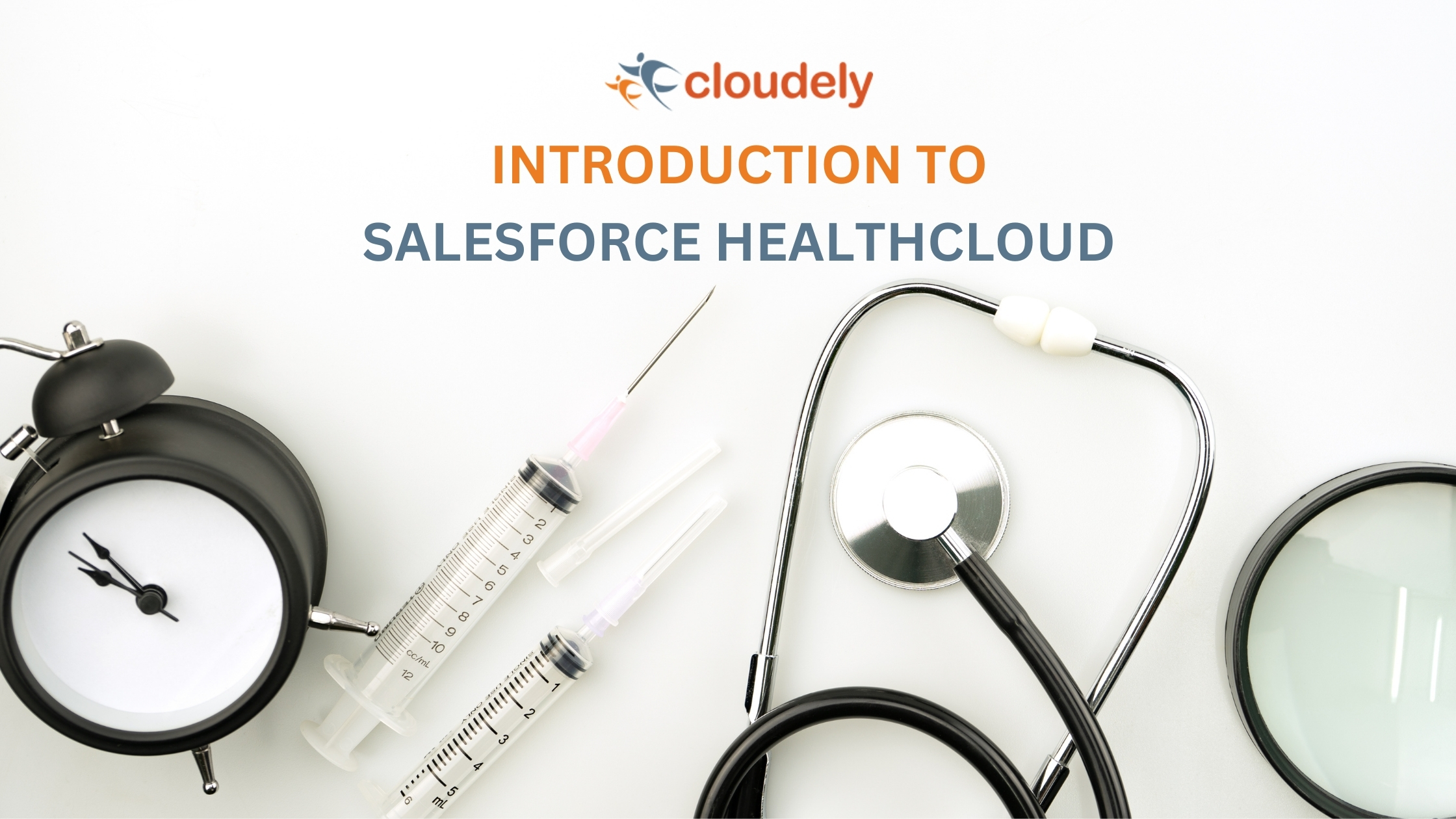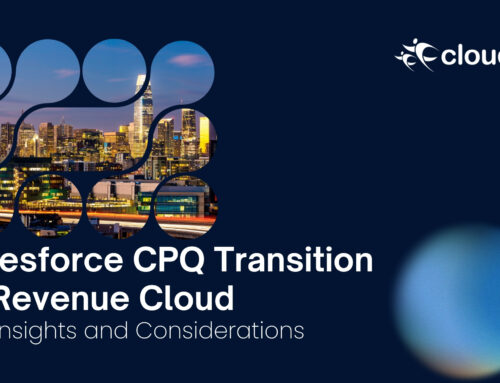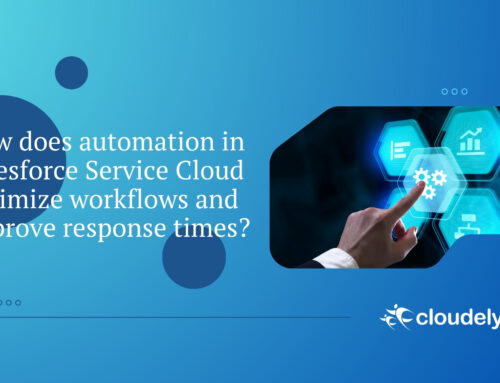Health Cloud, an industry-specific solution by Salesforce, is revolutionizing the way healthcare providers deliver personalized and connected care. Tailored to meet the unique needs of the healthcare industry, Health Cloud combines the powerful capabilities of Salesforce’s CRM platform with advanced features designed specifically for healthcare providers, payers, medical device companies, and pharmaceutical manufacturers.
With its focus on delivering seamless patient engagement and efficient care coordination, Health Cloud has become an indispensable tool for transforming healthcare operations. The primary goal of Health Cloud is to streamline and enhance the entire healthcare ecosystem.
Table of Contents
What is Salesforce Health Cloud?
Salesforce Health Cloud is a top-tier product among many in the different Salesforce product list. It is a cloud-based CRM that is designed by considering the healthcare worker in mind, removing all obstacles that stand in the way of a productive patient-provider relationship.
Health Cloud is built overSalesforce Service Cloud, this product from Salesforce features functionality like EHR-to-Salesforce API connections, smart case management, and record management.
Healthcare teams also get equipped with clinical and non-clinical data of members comprising information like current and past health conditions and medications, communication preferences, appointment history, and data across all the systems, including EHR. It understands the importance of patient engagement, and what exact information you need ahead of and during a patient visit.
Health Cloud gives easy access to Providers to get all the information in one place. This information includes:
- Contact Preferences
- Health Conditions & Treatment (medications)
- Patient Health History
- Appointment History
With all these details in tow, providing care for patients becomes more tailored, personalized, and effective. Whether it’s a follow-up email to the patient after surgery or medication prescriptions that do not react with other medications that the patient is currently taking, Health Cloud will take all of these customer needs into account.
How do Healthcare Providers and Administrators use Salesforce Health Cloud?
Administrators will get great benefits from using the Salesforce Health Cloud. Processes such as onboarding and acquisition are conveniently and securely accessed and connected to patient information across multiple channels. Say goodbye to searching for bits and pieces of crucial information. Providers also stand to benefit. Salesforce Health Cloud allows them to keep their sights set on improving patient care by leveraging personalized insights, and relevant communications, and discovering how a patient might react to certain therapies.
How can the Health Cloud Help with Care Management, Patient Experience, and System Architecture?
You are looking for a CRM solution with a focus on care management, patient experience, and user-friendly system architecture. Salesforce Health Cloud understands these customers’ needs and is built for the same.
Advantages of Health Cloud:
- Decrease mistakes and automate tasks with user-friendly dashboards and automated forms.
- Access comprehensive patient profiles, offering a lifetime of health history, contact details, insurance plans, existing health issues, and medications on one single screen.
- Gather and access data from wearables and medical devices, including sleep patterns, as well as activity and glucose levels.
- Group your patients by disease, medication type, age, or any other category you wish. By doing so, Salesforce Health Cloud allows you to find deeper insights. You can even evaluate how your patients are engaging with treatments and therapies, why they choose to stop them and look ahead by creating new solutions for better outcomes.
- Health Cloud displays data in easy-to-understand visuals, using graphs and color-coded methodology to make it easier than ever to find the information you are looking for.
Salesforce Health Cloud Features
Providers: Efficient Care and Improved Outcomes
Salesforce Health Cloud facilitates efficient care delivery and improved patient outcomes. By connecting clinical data, social determinants, and patient preferences, the platform empowers providers to deliver more personalized and effective care. This leads to enhanced outcomes and an overall improvement in the quality of care.
Payers: Simplified Member Benefits
Salesforce Health Cloud’s ability to simplify member benefits. Through the automation of health business workflows, the platform streamlines the member journey from enrollment to service to care management. This not only lowers costs but also ensures a smoother and more efficient experience for members navigating the complexities of their healthcare plans.
Pharma: Scale Patient-Centric Experiences
Salesforce Health Cloud provides the scaling of patient-centric experiences. By delivering personalized patient and provider engagement and support programs, the platform contributes to a more interconnected and patient-focused approach.
Additionally, it accelerates research and development (R&D) innovation by providing a connected platform that fosters collaboration and data-driven decision-making.
Medtech: Reduced Costs and Improved Transparency
Salesforce Health Cloud provides the ability to reduce costs and improve sales transparency in the system. The platform facilitates the management of commercial processes, the building of
provider relationships, and engagement with patients in a more efficient, compliant, and personal manner. This not only lowers operational costs but also enhances transparency in sales processes.
Public Sector Health: Community-Centric Government Experiences
Salesforce Health Cloud places the community at the center of government health
experiences. By completing case worklists, facilitating collaboration across teams, and employing advanced triage on a centralized platform, the platform enhances engagement with beneficiaries, patients, and residents.
Also Read: Factors to Consider When Implementing a Healthcare CRM
How do I implement Salesforce Health Cloud?
As we know for every salesforce project, we need to follow several steps same with the Salesforce Health Cloud implementation we need to follow several steps to ensure a successful implementation. Below are the important things to keep in mind as you prepare for implementation:
- Number of users, and have the right licenses for Health Cloud users.
- Make sure your Salesforce configuration can handle the growth in terms of new users and data as your organization expands.
- It’s always beneficial to Get help from a Salesforce partner for a successful health cloud implementation setup.
The basic steps for a health cloud setup, it might vary a bit based on the organization’s needs:
- Plan your implementation
- Setup
- Configure your workflows
- Deploy the Health Cloud package
- Customize the user interface
- Train your users
- Get support
- Monitor your implementation
- Continuous improvements
Get started with Salesforce Health Cloud
By using the capabilities of Salesforce Health Cloud, you can elevate patient experiences, improve decision-making, and ultimately lead your industry with confidence and innovation. Health Cloud must be used if healthcare is to become more efficient, creative, and patient-centered in the future. To revolutionize your healthcare services with Salesforce Health Cloud, contact us at salesforce@cloudely.com.






